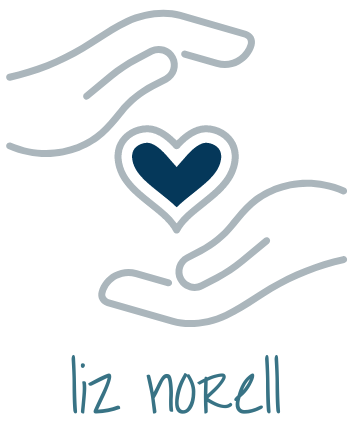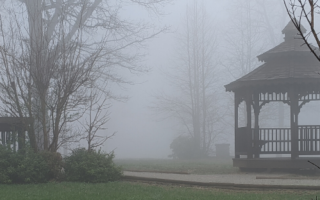After an incredibly tortuous journey, in August 2014 I defended my dissertation and officially earned my Ph.D., which would be conferred at some point later on. While I’m proud of my tenacity and proud of the research and writing I did, there’s no question that the best part of the whole process was getting to write the Acknowledgements. I forced myself to hold off writing those words until the final chapter was approved, because I needed to savor the victory that finally being able to pen them truly was.
I haven’t reread them in years, but I still feel them as deeply today as I did then. So here you go, Internet: The acknowledgements from my dissertation.

In his concession speech, after the Supreme Court had halted the recounting of ballots in Florida, Al Gore said, “I do believe, as my father once said, that no matter how hard the loss, defeat might serve as well as victory to shape the soul and let the glory out.” These words were little consolation to his supporters on that December 2000 evening, but in the years since, Gore’s words have come to have great meaning for me.
My journey to this moment in time has not been the easiest path. Tritely, I might say that the best things in life are worth fighting for, or perhaps I might offer some other bit of sage wisdom found in a book of quotations. Instead, I think back on the two sharpest moments from my educational experiences, two moments in which I objectively failed to accomplish a goal I’d set for myself, two moments when I came to question everything I thought was true about myself and wrestled with what failure meant going forward.
The first such experience came in fourth grade, when my entire school was tested for admission into the gifted and talented program. I had always been a motivated student, and that motivation was nurtured by a second-grade teacher who allowed the whole class to engage in independent reading study. I tore through reading textbooks at breakneck speed, growing tremendously as a reader and a student in the span of only a few months. As such, when the gifted and talented program was created and my classmates and I were tested for entry into the newly formed program, which would be designed and led by that very teacher, I had every expectation that I would be among its ranks. The IQ test they administered was peculiar, and my performance apparently fell just short of what was needed to enter the program. I was instead placed on the waiting list—a list off of which I would never move. While trivial in hindsight, this development rattled me to my very core. As a precocious young learner, I had come to see myself as a gifted and talented student with a sponge-like desire to know more, now, today. Not making it into the program meant I was merely average; I felt my failure meant everyone believed I was unexceptional.
My second brush with academic failure came in 2011, when I experienced true rejection from another doctoral program. Despite the many signs hinting at a separation, I failed to anticipate that the program was going to ask me to pack my bags and leave; consequently, when it became clear that my continued presence was not welcomed, I was utterly devastated. No words could ameliorate the deeply felt rejection and loss that came when the goal I’d been working towards for six full years was summarily taken out of my hands. The reasons why such a dramatic change took place are unimportant, just as it wasn’t important why the gifted and talented program chose not to offer me a spot when I was in fourth grade. No, what mattered was merely that I’d worked for something I failed to achieve, and that those defeats were truly each a defeat, in every sense of the word.
But as Al Gore said, and as he proved himself, defeat may serve as well as victory to shape the soul and let the glory out. I overcame the grade-school defeat by excelling in all things academic through my high school graduation, where I was among the students selected as those with the highest GPAs in our graduating class to participate in commencement exercises. I have long suspected that I was, in part, driven to take the hardest classes and get the highest grades—and apply to top-tier colleges—in high school because I felt I had something to prove to those who had earlier rejected me. The newly installed director of the gifted and talented program approached me at graduation and said something akin to, “It’s so great to see our program’s alums going on to such great academic pursuits!” In that moment, I got my triumph, as I replied, “Oh, no, I wasn’t good enough for your program.” It was a moment of tremendous satisfaction; I had risen above their low expectations and judgments for me, and I had emerged victorious. And they knew it.
Similarly, with this dissertation, I correct the academic record that might have been written, had I been willing to accept the defeat handed to me three years earlier. The support and encouragement provided by the best people I know convinced me not to give up, not to stop trying. UT-Dallas welcomed me back into its program; my mentors have pushed me to make this dissertation the best it could be. But they’ve never wavered in letting me know my home at UTD was secure. They have let me pursue this degree on my own terms, writing the dissertation I wanted to write. Passing comprehensive exams, creating a plan for this dissertation project, and seeing it through to completion, with all the inevitable bumps along the way, could not have happened had the Political Science department at UTD not so thoroughly welcomed and supported me. I owe the department a tremendous debt of gratitude. In completing this project, I feel once again vilified; I have triumphed above the low expectations others may have had for me, and I have done so on my own terms, in my own unique way, and the fruits of my labors are ones of which I am tremendously proud.
I had the good fortune to assemble a dissertation committee that has been unrivaled in its support and cheer. Tom Brunell has been a mentor and friend throughout this process, always willing to provide feedback and push my scholarship to be better and clearer. Bob Lowry’s unflinching eye for clarity and accuracy has unquestionably made this dissertation far stronger. Euel Elliott’s passion for sharing his knowledge and pushing his students to look at problems through different lenses benefited me as a student and as a scholar. Finally, Tony Champagne’s unwavering enthusiasm for everything this project entailed has been such a welcome source of pride and motivation. Each of the four men on this committee has brought a different and useful perspective to the three major papers comprising the dissertation; as a group, their heterogeneous perspectives have undoubtedly yielded a better finished product.
I would be remiss should I leave out the nontrivial role that Marc Hetherington at Vanderbilt played in the shaping of this dissertation. Always willing to talk over my latest research ideas or intuitions, Marc has shared his voluminous knowledge with me at various points over the years. It is because of Marc that I learned of a meeting at American University on polarization in American politics, taking place right in the middle of my writing phase; I was able to attend that one-day meeting, where I sat in a crucible of intellectual thought on those very questions with which I wrestled throughout this project. The experience was immeasurably valuable, and for that experience and so much more, I offer my profuse thanks to Marc.
Suzanne Globetti set an incredible example for me in her role in the Vanderbilt Political Science department. Her mastery of methods, and the accessible way she taught methods in my second attempt to master the theoretical aspects of regression, was an inspiration. My ability to tackle more complex research methods is to her credit; my stumbles in doing so are my own fault, not hers. Suzanne has carved out a professional life that I admire and respect, and I wish our discipline had more women like her.
I further acknowledge and appreciate my fellow UTD and Vanderbilt graduate students, whose friendship and collaboration helped me grow into the scholar I am. Mike Gunnin, Nick Morgan, Barbara Kirby, and Ronny Sullivan were brought into my life thanks to our overlapping years at UTD, and their friendships are among my most treasured. Mike and I continue to look for ways to coauthor pieces together, even as we have perhaps the most divergent research interests possible within the political science discipline, just because doing so gives us an excuse to visit Federal Reserve Banks hours before conference presentations in exciting locations. At Vanderbilt, Farhana Loonat, Camille Burge, Alejandro Diaz-Dominguez, Matt Simpson, Michael Sanchez, John Hudak, Jennifer Anderson, and many others were true colleagues and friends. I am grateful for each one.
My passion for studying political science was certainly not the result of growing up in a house where politics were regularly discussed; my parents have a general knowledge of the major happenings in the wider world, but they have always been far more interested in the goings-on of my hometown city council (a body on which my mom has served for more than a decade). Rather, my first intoxicating exposure to national politics came—as it does for so many young people—on a school trip to Washington, D.C., in ninth grade. My civics teacher, Pat Ramsey, exposed our ragtag bunch of high school freshmen to experiences we would not soon forget. Our trip was during the Democratic primary of 1992, and we stumbled across a pile of signs for Jerry Brown; it was the first time I’d really heard of Gov. Brown, and our group posed for a picture next to it. On one of our first nights in DC, we were walking around and encountered the Russian Embassy; a representative came outside, through the gates, and took Mrs. Ramsey back inside for what we gloomily thought might well be a permanent detention. (Happily, she was not gone long.) On that, my first, trip to DC, I felt an energy emanate from the sidewalks, and to this day I still feel that energy seeping through my feet whenever I’m in the District. Four years of college did nothing to weaken the childlike enthusiasm I feel whenever I see the Washington Monument or drive up Constitution Avenue. Every young American should be so fortunate to have a teacher like Pat Ramsey to whet their enthusiasm for civics education.
Two final groups of people must be recognized. The first is my parents and brother, the people who’ve known me the longest and supported me through all of my life’s ups and downs. Paul and Marshella Norell are easily the two hardest-working people I’ve ever known, and their work ethic was a norm in our house when I was growing up. They have long believed that the only thing standing between what you’ve got and what you want is hard work and an unwillingness to give up. The values they passed along to me are a big reason I have not let the judgment of others determine what my life will become. My younger brother, Robert, continues to inspire me with his wit, his intelligence, and the moral compass that guides all he does. I see so much of myself in him, and I’m so grateful that I have him as an ally in this world, someone who understands me so well and accepts me so fully.
It is to a handful of friends, though, that I owe my greatest thanks. Were it not for the Nashville Biscuit House breakfasts with Brant Taylor in my lowest moments of self-doubt, the lunchtime conversations about polarization with Derik Pell, the enthusiastic emails inquiring about my dissertation project from Scott Foster, the invaluable, time-saving data-wrangling assistance from Chris Farmer, or the cheerleading from Moon Bishop, Shirley Inglis, Ross Drinen, Mary Lew, Benedict Uroda, Emily Hopper, Edward Whitfill, Chad Owen, Alana Ohana, Jeff Sheehan, Jeff Baxter, Kelly Malone, Chris McDonough, Stephen Miller, Elise Kikis, Buck Butler, Sarah Butler, and Walt Borges, I’m not sure this dissertation would’ve ever seen the light of day. I thank each of them profusely. Two teenagers in Sewanee contributed their energies to helping me identify and categorize New York Times articles for the third paper of this project; Blake Drinen and Kate Butler get a special nod for being willing to immerse themselves in the unfamiliar and the not-terribly-exciting, the reward for which was a week of their lives gone down the rabbit hole of LexisNexis and GoogleDocs. I’m glad they emerged from their respective rabbit holes, and I’m grateful for their willingness to help, even though I’m sure that willingness was at least in part enabled by my promise of a quick summer dollar (or two).
To my partner, my best friend, and the greatest love of my life, I found the courage to try again because your support, love, and willingness to do absolutely anything to help was never questioned. Doug Drinen makes this cushy life of mine both possible and immeasurably better than it ever was before. I thank the universe and Dr. Neil Clark Warren for his 72 dimensions of compatibility (at least, I think it was 72) for bringing Doug into my orbit, and I thank Doug for being willing to scrap The Plan and take a chance on me.






